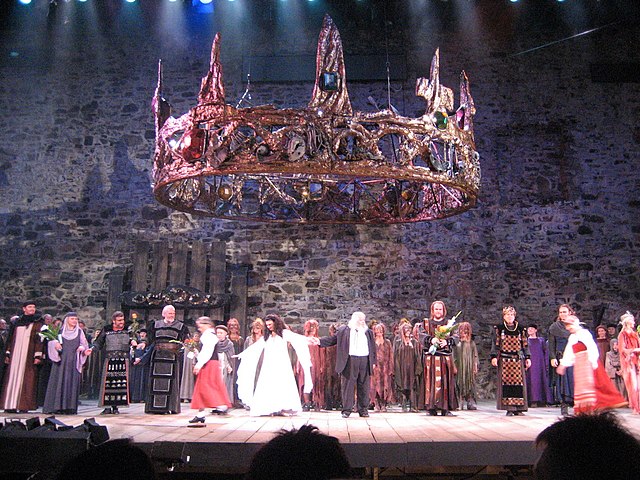A libretto is the text used in, or intended for, an extended musical work such as an opera, operetta, masque, oratorio, cantata or musical. The term libretto is also sometimes used to refer to the text of major liturgical works, such as the Mass, requiem and sacred cantata, or the story line of a ballet.
Cover of a 1921 libretto for Giordano's Andrea Chénier
The composer of Cavalleria rusticana, Pietro Mascagni, flanked by his librettists, Giovanni Targioni-Tozzetti and Guido Menasci
Pages from an 1859 libretto for Ernani, with the original Italian lyrics, English translation and musical notation for one of the arias
Henry Purcell (1659–1695), whose operas were written to English libretti
Opera is a form of theatre in which music is a fundamental component and dramatic roles are taken by singers. Such a "work" is typically a collaboration between a composer and a librettist and incorporates a number of the performing arts, such as acting, scenery, costume, and sometimes dance or ballet. The performance is typically given in an opera house, accompanied by an orchestra or smaller musical ensemble, which since the early 19th century has been led by a conductor. Although musical theatre is closely related to opera, the two are considered to be distinct from one another.
Macbeth at the Savonlinna Opera Festival in St. Olaf's Castle, Savonlinna, Finland, in 2007
La Scala of Milan
Palais Garnier of the Paris Opéra
Berlin State Opera








